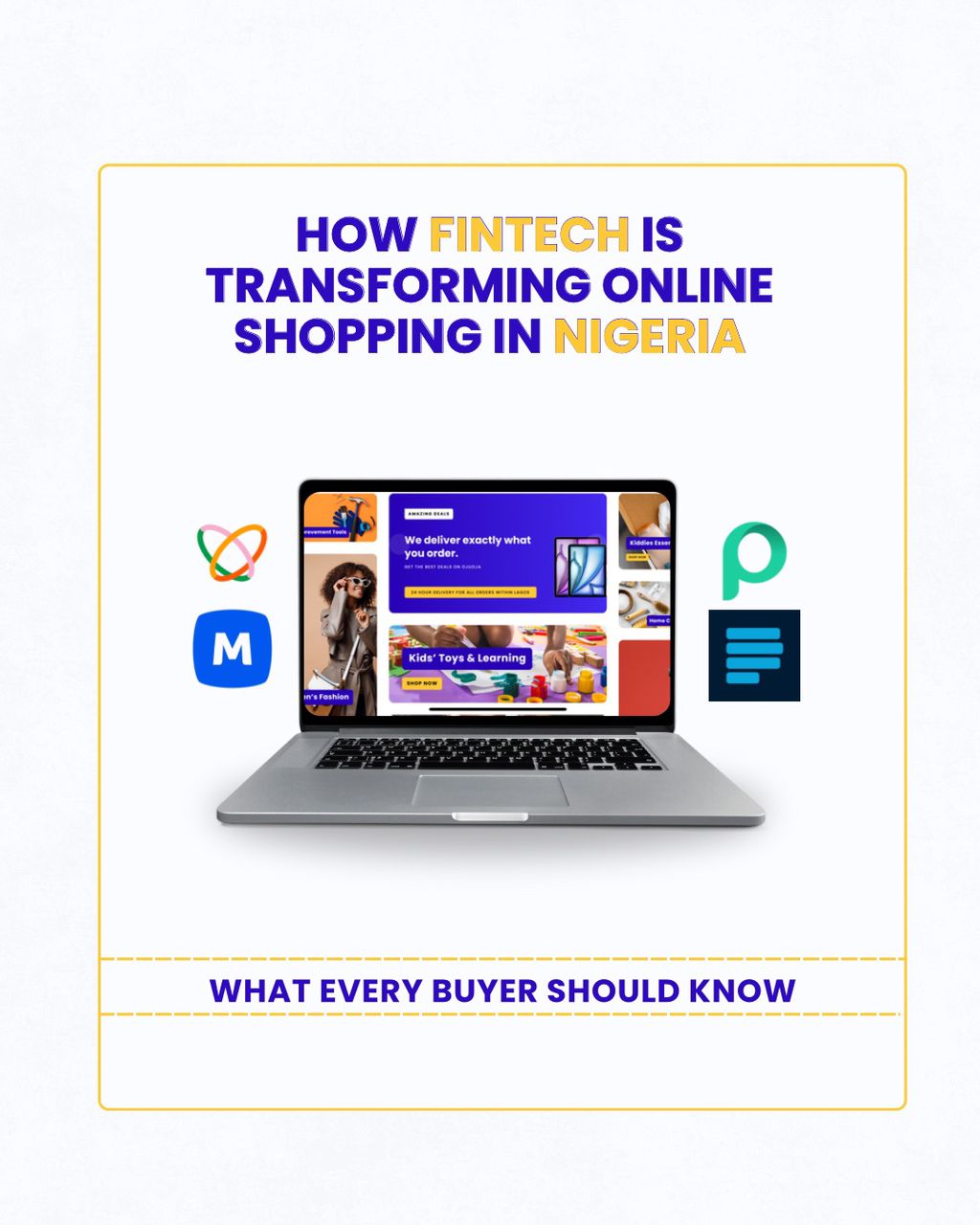
Benefits of Digital Shift: How Fintech is Redefining E-Commerce in Nigeria (Part 1)
Nigeria’s e-commerce space is undergoing a massive transformation because of Fintech innovation, social media platforms, and smart AI tools, as it is no longer just a place to “buy and sell,” it has evolved into a living ecosystem.
As the demand for seamless online shopping continues to grow—especially among tech-savvy youth and small business owners—understanding these trends in e-commerce is crucial for both sellers and buyers.
The country’s online shopping environment is no longer what it used to be, once dominated by rudimentary platforms and clunky checkout experiences.
The digital marketplace has transformed into a dynamic system of intelligent transactions, mobile innovations, and customer-centric tools
This shift reflects not just global progress but a localized adaptation of Fintech’s provisions to suit the fast-paced, mobile-first habits of Nigerian consumers.
From Instagram stores accepting payments in seconds, to AI bots answering customer queries round the clock, the difference is clear: shopping in Nigeria has become faster, safer, and more personal.
Fintech Digital Payments: Instant, Reliable, and Everywhere
In the past, paying for goods online often felt like a gamble. Many buyers hesitated due to frequent bank network issues or vague confirmation processes.
Today, payment technology has evolved so much that it’s often faster to shop online than in person.
From neighborhood vendors to major marketplaces, buyers can now complete payments using a range of tools—USSD, mobile wallets, card payments, QR codes, and direct bank transfers—all tied to real-time processing systems.
What once took minutes, sometimes hours, now happens in seconds. No more uploading screenshots or calling the seller to confirm; the system handles it all.
Mobile payment providers have become a core part of this trust-building exercise. Their systems automatically verify transactions, update inventory, and notify sellers without delay.
This immediacy has become crucial for both impulse buys and planned purchases, especially in sectors like fashion, home gadgets, and electronics.
Installment Shopping: Empowering the Middle Class
Perhaps one of the most impactful developments in recent years has been the introduction of flexible payment options.
For middle-income Nigerians, this feature unlocks access to products that might otherwise remain out of reach.
With just a few taps, customers can buy that smartphone, kitchen appliance, or set of office furniture and spread the cost over weeks or months.
These platforms assess eligibility instantly, using data such as transaction history, identity verification, and repayment records.
On the business end, merchants benefit too. They move inventory faster, enjoy higher cart values, and foster long-term customer relationships.
By enabling customers to buy without immediate full payment, sellers reduce the friction that might otherwise lead to abandoned carts or postponed decisions.
Security and Fraud Protection: Restoring Confidence
One of the lingering fears in the Nigerian digital space is fraud—fake sellers, cloned sites, or payment redirections. Fortunately, the landscape is changing.
Today’s digital systems prioritize safety. Thanks to Fintech. Most platforms now offer OTP verification, escrow services, fraud detection algorithms, and secure refund processes.
Transactions are traceable, and customer complaints are taken seriously.
Many buyers now feel confident making large purchases online, such as phones, furniture, or even paying for logistics.
That’s a major leap from just five years ago, when most transactions involved direct messaging, proof of payment screenshots, and a lot of trust.
With mobile apps now doubling as mini banking platforms, users can track transactions, monitor spending, and even flag suspicious activity—all from their phones.
This rise in transparency helps clean up the marketplace and promote longer-term growth.
Social Platforms: From Browsing to Buying
An entirely new layer of online shopping has emerged through social media. Sellers no longer need full-blown websites to reach an audience.
With tools like WhatsApp Business, Instagram Shops, and Facebook Marketplace, vendors can list products, take orders, and receive payments without leaving the app.
What’s more impressive is the convergence of payments within these platforms. Shoppers can scroll, chat with the vendor, and pay—all in one experience. It creates a seamless buyer journey, perfect for today’s short attention span and mobile-first culture.
And it’s not just small-time vendors taking advantage. Large brands have adapted too, using influencers, live shopping events, and AI-generated content to connect with users in real-time. The old barrier between social engagement and transaction is gone.
Artificial Intelligence: Quietly Revolutionizing the Experience
Another silent revolution is taking place through AI integration. Whether it’s chatbots answering questions at midnight, personalized product recommendations, or fraud detection, artificial intelligence is making online shopping smarter.
AI tools now help sellers understand customer behavior, suggest what products to restock, and even automate delivery updates. For the customer, it feels like magic—but under the hood, it’s precision algorithms doing the work.
This technology also helps filter fake reviews, flag high-return items, and improve customer service overall. Instead of being reactive, platforms are now proactive—solving problems before they arise.
With Fintech and E-commerce, it’s easy to think these innovations are still “coming”—but in truth, they’re already in motion.
Across Nigeria, everyday users are paying with their phones, receiving packages the next day, and interacting with online stores that know what they want before they ask.
The digital buying and selling culture is now deeply intertwined with mobile money, smart systems, and behavioral data. For those willing to adapt—whether seller or buyer—the opportunity is enormous.
What used to be a chaotic fintech has created a trust-deficient space that is now becoming structured, data-driven, and efficient.
And with continued investments in mobile infrastructure, digital literacy, and security, the potential for expansion remains high.
Conclusion: A Better Experience for All
The transformation of Nigeria’s online marketplace is not just about convenience; it’s about empowerment. More people can now sell, shop, and grow their businesses without needing physical shops or bank queues.
Families can stretch their budgets with flexible payments. Startups can launch with minimal overhead. Consumers can shop smarter, faster, and safer.
This new chapter is just the beginning. As innovation continues to rise, the country is poised to become a continental leader in digital trade—not because of buzzwords, but because of real tools solving real problems every single day in Nigeria.







Leave a Comment
Your email address will not be published. Required fields are marked *